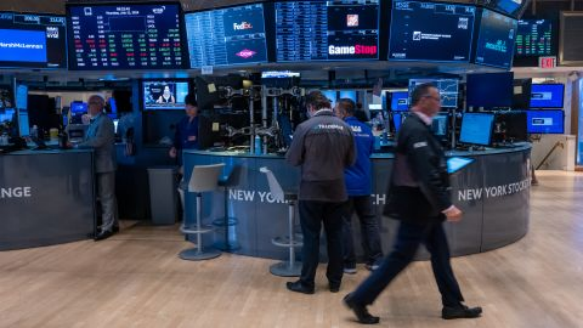
Global Markets Respond Strategically to US Political Turmoil with Dow’s Record Surge
Fiona Nanna, ForeMedia News
5 minutes read. Updated 10:41PM GMT Tues, 16 July, 2024
Financial markets worldwide have shown a surprising resilience amidst recent political upheavals in the United States, illustrating their knack for responding dynamically to chaos. On January 6, 2021, amid unprecedented turmoil at the US Capitol, the Dow Jones Industrial Average achieved record highs, showcasing a paradoxical reaction to external crises. Similarly, as the COVID-19 pandemic wreaked havoc on global economies, stock markets surged, demonstrating their detached response to humanitarian crises.
Contrary to common misconceptions, this phenomenon does not solely reflect a callous pursuit of profit by Wall Street traders. Rather, investors pragmatically assess unfolding events, focusing sharply on their potential impact on corporate bottom lines. As noted by Steve Sosnick, Chief Strategist at Interactive Brokers, market movements often defy simplistic political predictions, instead emphasizing financial implications such as revenues, earnings, and cash flow for major corporations.
In the aftermath of significant political events, such as the recent attack on a US presidential contender, market reactions remain nuanced. Sosnick cautions against overinterpreting short-term market rallies, emphasizing the daily fluctuations inherent in equity trading. Despite speculative bets on political outcomes, illustrated by the surge in so-called “Trump trades,” including volatile stocks like Trump Media and cryptocurrencies favored by the former president, such as Bitcoin, market analysts remain divided on the long-term implications.
The surge in assets linked to a potential Trump presidency underscores market perceptions of political alignments. Stocks like Tesla, led by vocal Trump supporter Elon Musk, saw marginal gains, while firearm manufacturers like Sturm Ruger and Smith & Wesson experienced notable upticks. Conversely, sectors traditionally aligned with Democratic policies, such as solar energy and cannabis, witnessed declines, reflecting broader market sentiments.
Analysts from Macquarie highlight that while market responses may indicate short-term optimism for specific sectors under a Trump administration, the broader implications of political instability are concerning. Democratic institutions, crucial for sustained market stability, face unprecedented challenges amidst ongoing political turmoil.
Despite these dynamics, broader equity markets appear relatively unfazed by political shocks, as indicated by stable trends in Treasury futures. Bond yields, sensitive to political sentiment, fluctuated notably following recent presidential debates, suggesting cautious optimism among bond traders regarding future economic policies. However, the modest adjustments in yield curves signal a measured, rather than drastic, reassessment of political probabilities.
In conclusion, while financial markets navigate through political uncertainty with tact, their responses underscore the intricate interplay between geopolitical events and economic outcomes. As global investors monitor these developments closely, the resilience of markets amidst turmoil remains a testament to their adaptive nature and strategic foresight.
Backlinks:

